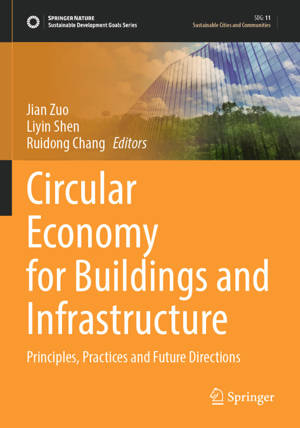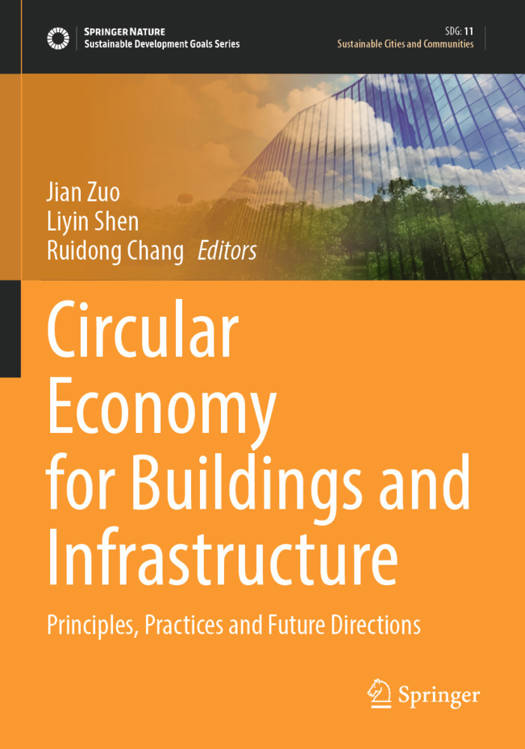
- Afhalen na 1 uur in een winkel met voorraad
- Gratis thuislevering in België vanaf € 30
- Ruim aanbod met 7 miljoen producten
- Afhalen na 1 uur in een winkel met voorraad
- Gratis thuislevering in België vanaf € 30
- Ruim aanbod met 7 miljoen producten
Zoeken
Circular Economy for Buildings and Infrastructure
Principles, Practices and Future Directions
€ 179,45
+ 358 punten
Omschrijving
This edited volume covers theoretical and practical aspects of circular economy in building development, offering chapters dealing with topics such as material design, affordability of housing development, waste management and recycling, smart metering, and more. A particular focus is placed on various stakeholders' points of view. The book's chapters are co-developed and contributed by multidisciplinary teams including both academics and industry practitioners. The case study-oriented approach taken here helps to facilitate the reader's understanding of how building sustainability can be achieved in the context of circular economy.
The building industry has significant environmental, social and economic impacts. As one of the biggest energy consumers and carbon emitters, building sustainability has attracted wide attention globally. Building projects and their associated activities consume a large amount of energy, natural resources and water while producing a large proportion of wastes throughout their lifecycles. The traditional linear approach of "make, use and dispose" has been heavily criticized, whilst the circular approach has gained momentum. Indeed, circular economy has emerged as one of key principles to manage sustainability related issues by means of focusing on the circularity of resources as well as the cost implications.
The building industry has significant environmental, social and economic impacts. As one of the biggest energy consumers and carbon emitters, building sustainability has attracted wide attention globally. Building projects and their associated activities consume a large amount of energy, natural resources and water while producing a large proportion of wastes throughout their lifecycles. The traditional linear approach of "make, use and dispose" has been heavily criticized, whilst the circular approach has gained momentum. Indeed, circular economy has emerged as one of key principles to manage sustainability related issues by means of focusing on the circularity of resources as well as the cost implications.
Specificaties
Betrokkenen
- Uitgeverij:
Inhoud
- Aantal bladzijden:
- 344
- Taal:
- Engels
- Reeks:
Eigenschappen
- Productcode (EAN):
- 9783031562433
- Uitvoering:
- Paperback
- Afmetingen:
- 178 mm x 20 mm
- Gewicht:
- 678 g

Alleen bij Standaard Boekhandel
+ 358 punten op je klantenkaart van Standaard Boekhandel
Beoordelingen
We publiceren alleen reviews die voldoen aan de voorwaarden voor reviews. Bekijk onze voorwaarden voor reviews.










